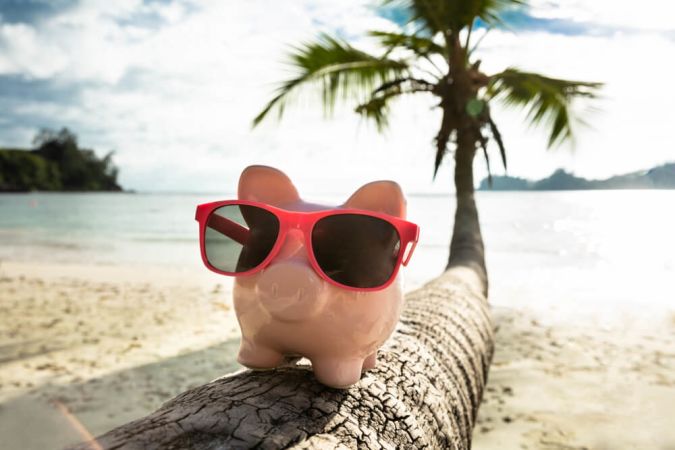If you set a budget for your holidays, do you stick to it? A recent InsureandGo survey showed that only 36%1 of holidaymakers stick to their budget. While going a little over each day seems like a minor issue, it can soon add up. Managing your money is a vital skill, especially during a cost-of-living crisis.
There are lots of subconscious reasons that can make it tricky to stay on budget during a holiday. So why do so many of us spend more on holiday than planned, and how can you avoid it?

Different currencies can make you feel like you have more to spend
We’re all used to looking after the pennies so the pounds will care for themselves, but what about cents and dollars? Psychologically, something as simple as using a different type of currency can trick your brain into overspending. This is especially true when travelling to destinations with high-value denominations. Looking into your wallet and seeing a stack of Indonesian rupiah bills worth 10,000 each makes you much more likely to overspend.
When dealing with foreign money, it’s essential to consider its “real” value in pounds, not just the face value on the note. While mentally calculating this can be challenging, some fantastic budgeting apps do the conversion for you.
“Everyday” vs holiday spend
Another way you can trick yourself into going over budget on holiday is how you mentally divide your costs. If you’ve allowed £100 a day for your trip, it’s all too easy to spend £30 on a meal but tell yourself that it’s an “everyday” spend and shouldn’t come out of the holiday budget.
Treat all of your costs as part of the holiday spending, and remember to build this into your budget when you plan your trip.
Work out your budget carefully
One of the best ways to stick to your planned budget is to ensure it’s right for you. Before you travel, familiarise yourself with your destination’s food and travel costs. Just choosing an arbitrary amount doesn’t work, and once you’ve gone over it once, it’s much easier to do it again.
Setting a budget that’s too high can be just as bad as setting one that’s too low. If you budget £1,000 for a trip when you only need £500, you give yourself permission to splurge that extra £500 on your last day rather than saving it for another trip.
One final tip for staying on budget is to arrange a fun activity for the day after you return from your holiday. Not only can it help keep the post-holiday blues at bay, but it can also stop you from overspending on the last few days of your trip.
To ensure you stay within budget even after unexpected events, make sure you buy travel insurance as soon as you book your trip.
1 – InsureandGo Survey Nov 22 – 7,111 respondents

